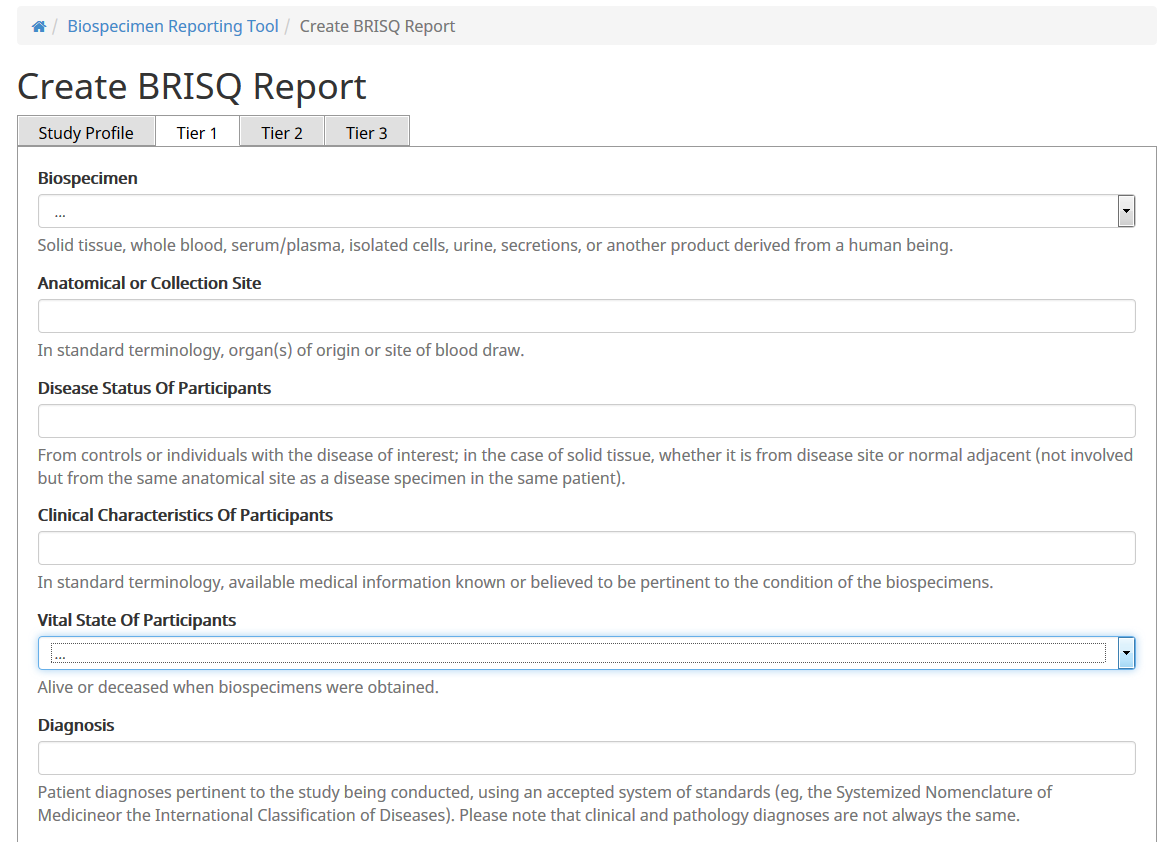The BRISQ Report
An online biospecimen data reporting tool that aids biobanks in capturing biospecimen information to be released and distributed to researchers.
Sign Up to get access to the BRISQ Report Tool.
The Biospecimen Reporting for Improved Study Quality (BRISQ) Report tool was created to facilitate reporting quality by enabling biobanks to provide a structured and standardized report of biospecimen data based on all tiers of the BRISQ recommended list of elements. In this first iteration users must enter all data on each occasion to generate the report. Plans for the second release of the tool include additional features such as user account and login capability authenticated by username/password, individual data storage for each biobank user, and user defined templates allowing reduction of data entry time for similar multiple data releases.

- Enter in recommended biospecimen data elements
- Create a Report PDF that can then be provided to research users along with the biospecimens
- Allow researchers to include the Report as supplementary data to their manuscript when it is published
We expect the tool and report generated will facilitate manuscript review by clearly delineating biospecimen factors and perhaps assist in successful publication. To laern more about the development of this tool, read the manuscript, "An Online Tool for Improving Biospecimen Reporting" available from Biopreservation and Biobanking.
The BRISQ recommendations were developed through an initiative led by members of the NCI Office of Biorepositories and Biospecimen research (OBBR), and the committee included participants from the OBBR Biospecimen Research Network Symposium, and members of the International Society for Biological and Environmental Repositories (ISBER) and by members of the committees responsible for the Reporting recommendations for tumor MARKer prognostic studies (REMARK) and Strengthening the Reporting of Observational studies in Epidemiology (STROBE). These recommendations can be found on the Equator Network website library for health research reporting.
